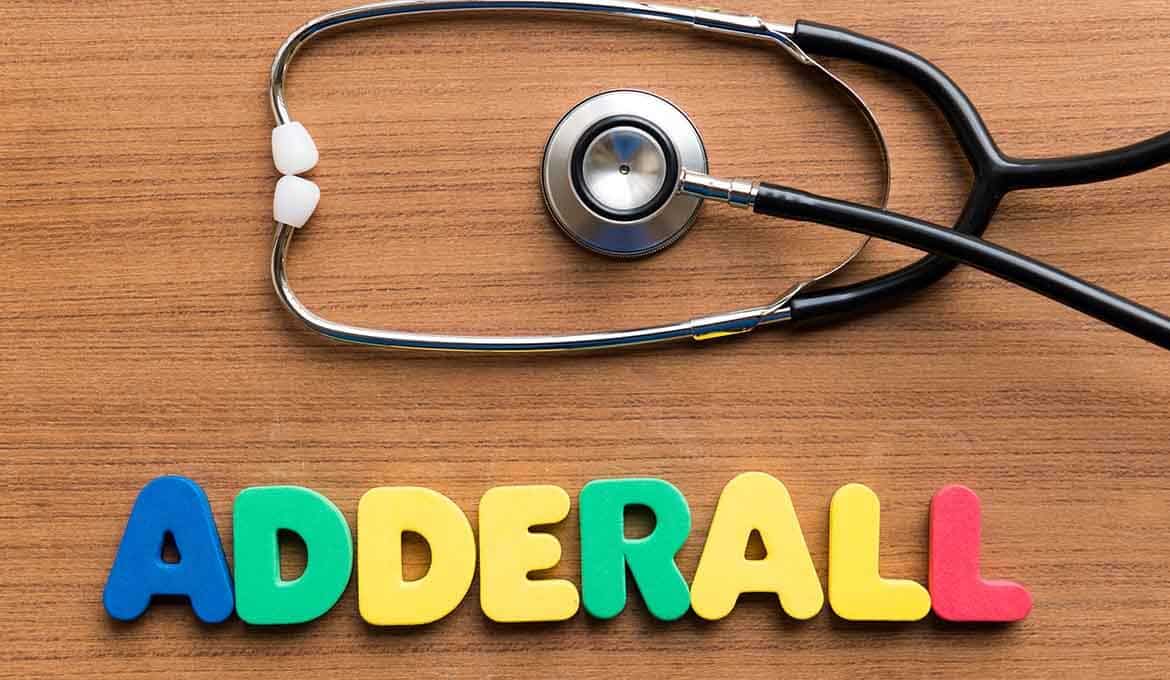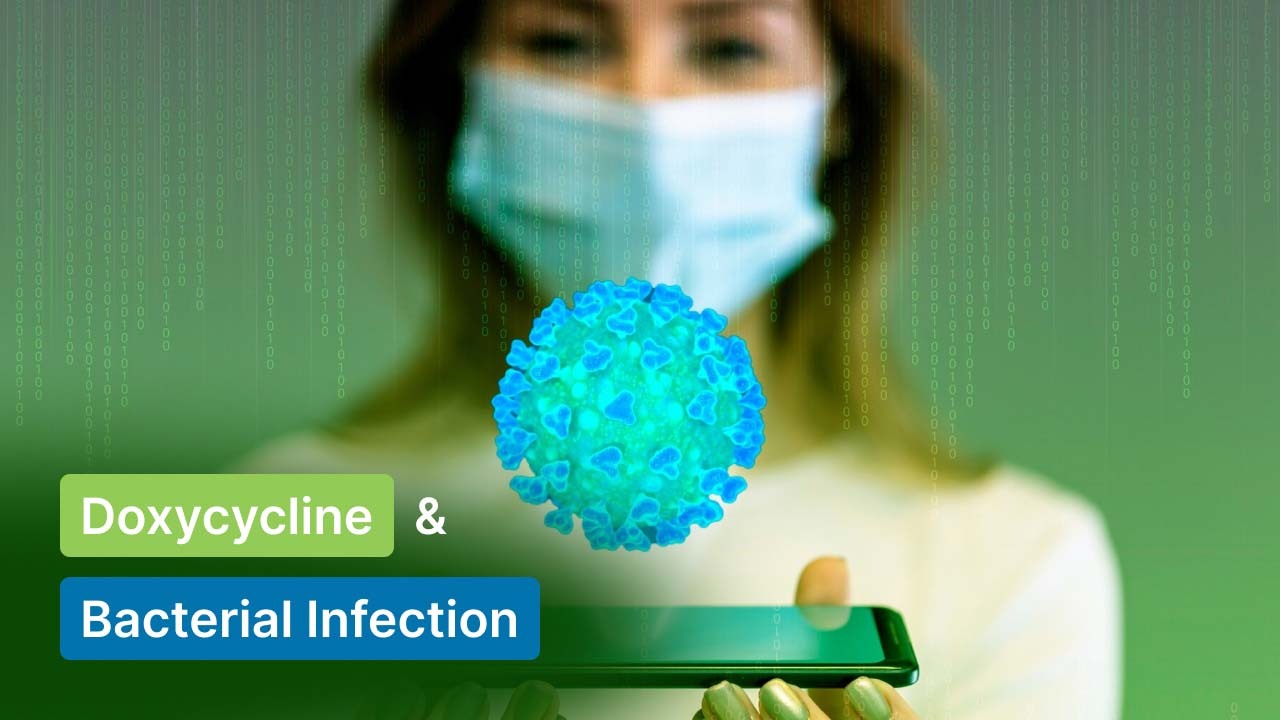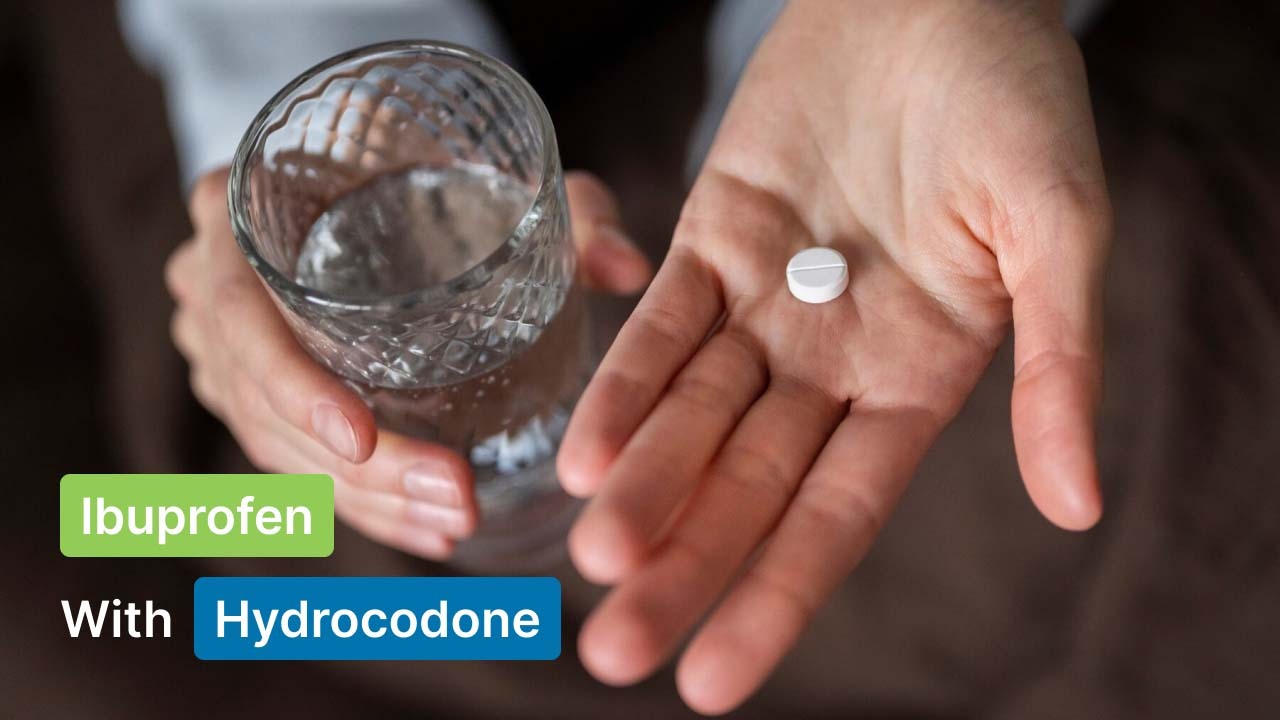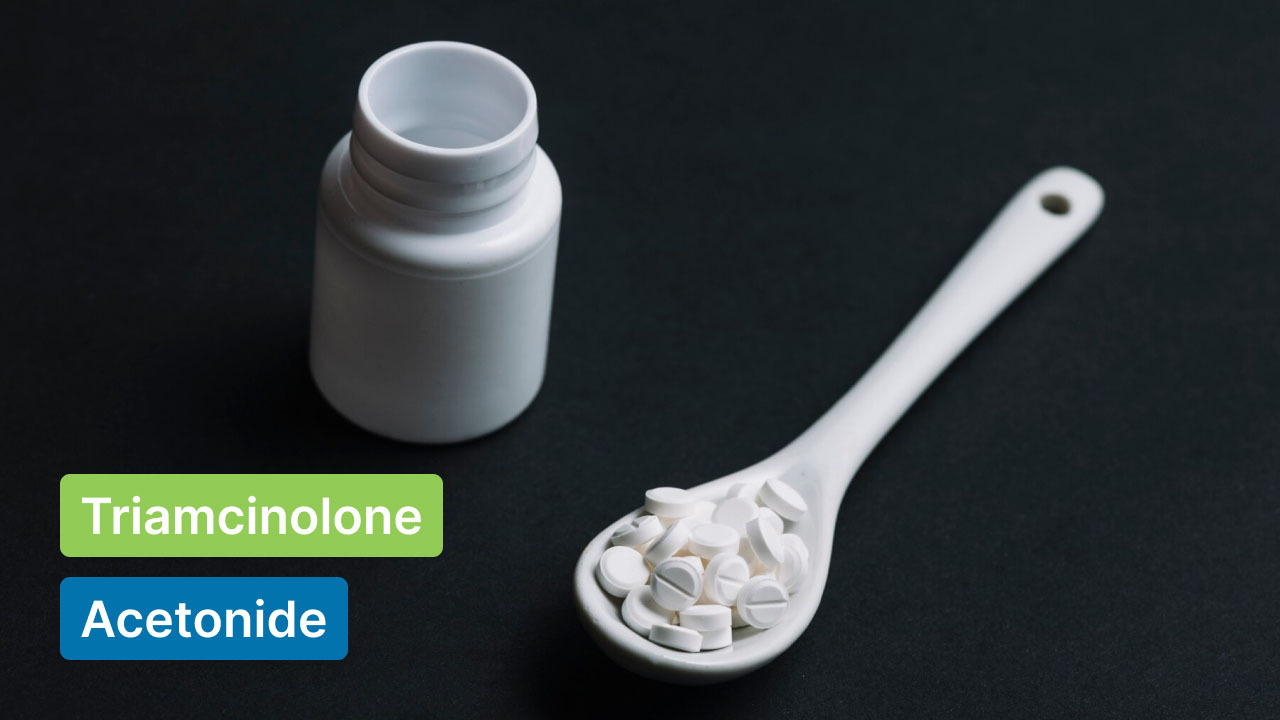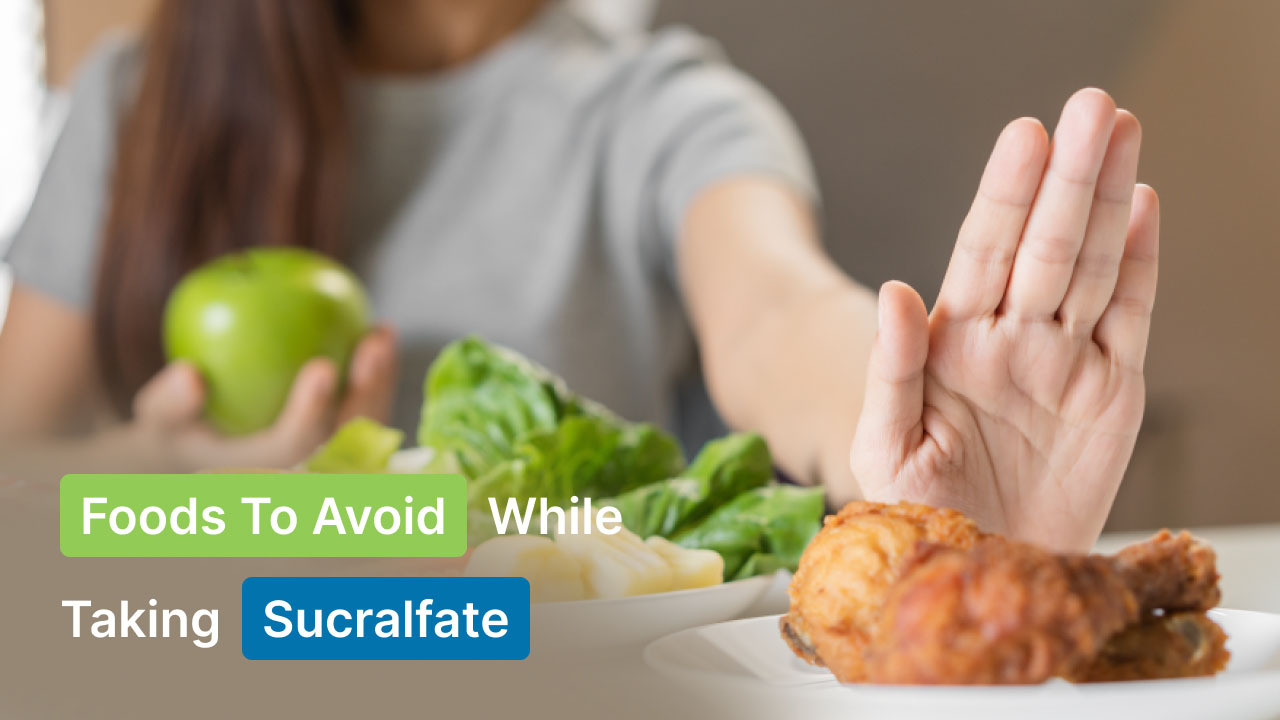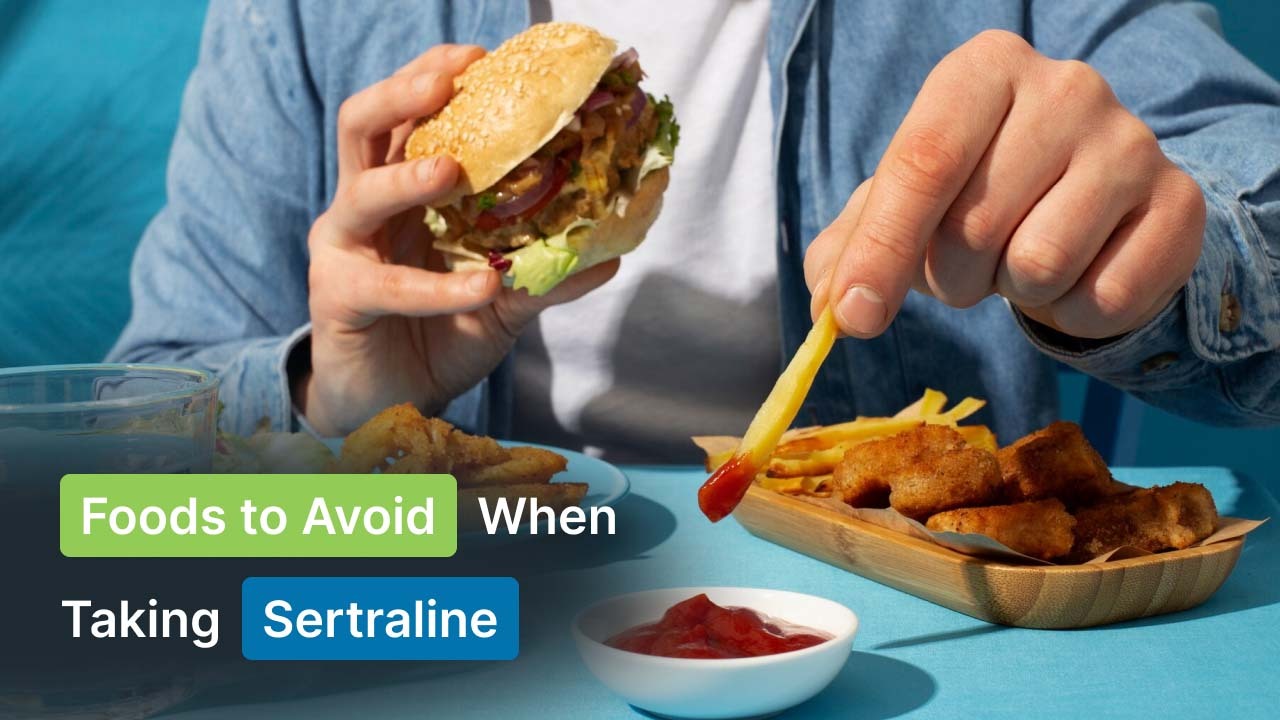
If you're experiencing major depression, anxiety, or panic attacks, your doctor may have prescribed you some antidepressants. Sertraline is undoubtedly among the top antidepressants that are prescribed in such cases, particularly in the USA.
This antidepressant medication basically increases the level of serotonin, a natural chemical in the brain that helps maintain mental balance. However, you must be aware of the risks and dangers of combining Sertraline with certain foods and beverages.
After all, taking a new medication means adjusting your lifestyle a little, and that includes the food you eat. That’s because food-drug interactions may happen, which sometimes could be deadly.
This means that a particular nutrient or compound in the food changes the way your body metabolizes the drug. This can either boost or diminish the dose your body gets.
Continue reading to familiarize yourself with the top foods to avoid when taking Sertraline. Also, learn the potential side effects and tips for taking sertraline medication.
Overview of Sertraline
Sertraline or Zoloft is an FDA-approved antidepressant that falls into the class of drugs known as Selective Serotonin Reuptake Inhibitors, or SSRIs.
It is generally prescribed to treat mental health conditions such as depression and anxiety. It is also used in the treatment of the following conditions:
- Panic attacks,
- Obsessive-compulsive disorder (OCD),
- Post-traumatic stress disorder (PTSD),
- Social anxiety disorder (SAD),
- Premenstrual dysphoric disorder (PMDD).
- Major depressive disorder (MDD).
In some cases, Sertraline is also prescribed to treat acute bipolar disorder as an off-label drug.
However, note that Sertraline isn't a cure for these conditions; instead, it functions as a tool to help manage symptoms and enhance overall quality of life. It is usually used along with other therapies and lifestyle modifications as part of a broader treatment plan.
It works by increasing serotonin levels (aka good hormones) in your brain. Serotonin is a chemical messenger that plays a key role in mood, sleep, and anxiety.
This rise in serotonin levels may help to boost and manage your moods. This causes an improvement in the symptoms of depression, OCD, and specific types of anxiety.
It's available in pill and liquid form.
Tablets: 25 mg, 50 mg, and 100 mg
Oal Liquid: 20 mg/mL
The medication's full effects might not be seen for a few weeks while the brain gradually becomes used to the higher serotonin levels. In most cases, it takes 6-8 weeks for the full benefits of Zoloft to work.
Now that you have a basic overview of Sertraline, let's move on to the main topic of this blog.
Top 6 Foods To Avoid When Taking Sertraline
Like any medication, certain specific foods may interfere with the absorption of Zoloft and complicate things. Some food-drug interactions increase your risk of experiencing adverse effects or reduce the power of this medication.
Here’s a list of foods to avoid when taking sertraline:
1. Alcohol
Alcohol is the first thing you must avoid if you're being treated with Sertraline. The interaction can be quite dangerous. Many people who have anxiety and depression think drinking will help lower their stress.
That's why they go straight to buying alcohol. Unfortunately, it turns out the good mood is only temporary, and it will only pose serious problems to your health.
In particular, mixing alcohol and Sertraline may increase the risk of stomach or gastrointestinal bleeding. Some people may also experience impairment in thinking and judgment. So, try to avoid drinking to ensure the medication is working properly.
By doing so, you're only making the side effects like dizziness or drowsiness worse. Also, be aware of any edibles that may have alcohol content. Experts call it a “Black box warning,” meaning the pharmacy or doctor must warn people about the potential interaction of alcohol and sertraline.
2. High-Tyramine Foods
Another important warning is to avoid eating tyramine-rich food. Tyramine is an amino acid found in regular foods you eat. So, you have to be careful.
Some of the foods rich in tyramine include aged cheese, pickles, processed or cured meats, fish, soy sauce and soybean paste, yeast extract, avocado, and bananas.
Low-fermented dairy products like yogurt, milk, and cheese have the potential to disrupt the absorption of Sertraline, leading to reduced effectiveness.
This is because the interaction between Sertraline and tyramine-rich foods may cause a sudden increase in your blood pressure, known as a hypertensive crisis, which can be life-threatening.
Hence, patients taking Sertraline must avoid these foods and beverages altogether as they affect serotonin levels.
3. Caffeine
Another food to avoid when taking Zoloft is Caffeinated food. Caffeine is a common stimulant present in tea, coffee, and energy drinks.
When you drink coffee while on Sertraline, it can overstimulate your body and mind, which means Sertraline loses its effect on your anxiety. However, more research is required to back this up.
It may also cause jitteriness, nervousness, and insomnia, which can aggravate any existing symptoms of anxiety or depression. Research shows this combination may cause a condition called serotonin syndrome with a number of adverse reactions.
Chocolate is another thing to avoid when you're on sertraline medication, as it may cause itchiness. So, avoid caffeine or at least try to limit the intake of all sources of caffeine.
4. Herbs and supplements
There’s not much information regarding herbs and supplements to avoid when taking sertraline. However, studies show that they may diminish the efficacy of Sertraline or increase the risk of mild side effects.
It is also reported that when you consume supplements with Sertraline, it may result in serotonin syndrome, which could be fatal.
Some of the herbs and supplements you must avoid include:
- St John's wort,
- Kavam
- Valerian,
- L-tryptophan,
- High doses of vitamin E supplement.
5. Grapefruits and grapefruit juices
Sertraline is a type of antidepressant medication that undergoes metabolism in your body via enzymes in the CYP3A4 pathway. Here, compounds present in grapefruit and grapefruit juice can inhibit this pathway, potentially affecting the metabolism of Sertraline.
As a result, if you eat or drink grapefruit while taking Sertraline, the drug's concentration in your bloodstream will remain high. This raises your chances of having unpleasant side effects.
Aside from grapefruit, other fruits can interact with Sertraline, including apples, pomegranates, grapes, and cranberries. Avoid them and be careful when consuming these fruits with Sertraline. If anything happens, talk to your doctor first.
6. Foods high in sugar and carbs
Foods high in sugar and carbohydrates may disrupt Sertraline's effectiveness in the body. When you eat certain items, your blood sugar increases and then collapses, exacerbating feelings of depression or anxiety. Thus, sertraline loses its efficacy.
Therefore, when taking Sertraline, stay away from sugary snacks and drinks, including candies, sugary cereals, cookies, and sodas. Avoid high-carb foods like rice, pasta, and white bread as well.
In addition, it’s advised to stay away from high-fat meals. Such foods can slow down the absorption of Sertraline, potentially delaying its onset of action. Hence, to ensure optimal absorption, it’s recommended to take the medication with a light meal.
Lastly, if you have any concerns regarding any specific foods or supplements or Zoloft, make sure to ask your doctor. They will provide a list of things you may need to limit or avoid based on your medical history and dosage.
What Medication to Avoid When Taking Sertraline?
Aside from the above foods, certain antidepressants and other drugs that boost serotonin levels shouldn't be taken with Sertraline. Monoamine oxidase inhibitors (MAOIs), which are stronger antidepressants known for interactions, should not be combined with Zoloft.
In most cases, interactions between MAOIs and patients can occur weeks after treatment ends. Inform your healthcare practitioner about any MAOIs or other antidepressants you have taken recently or are presently taking, even those that you have taken in the past 2 weeks.
Sertraline may also interact with other drugs, such as:
- methylene blue
- pimozide,
- thioridazine,
- linezolid.
Before beginning sertraline treatment, disclose to your healthcare professional all of the drugs and supplements you use for your own safety.
When and How to Take Sertraline?
Sertraline/Zoloft is available in tablet and concentrated liquid forms. Always take the dose by mouth as directed by your doctor. You may have to take this drug for several months before you start to feel better.
A standard starting dosage of Zoloft for adults is 25 mg or 50 mg per day. Your healthcare provider may gradually change your dose to a maximum of 200 mg per day.
Take Sertraline tablets either in the morning or evening on an empty stomach. It can also be taken with food, but be careful not to take it with the foods listed here.
If you're using the sertraline liquid, you must first dilute it with a glass of water. You can also mix the solution with the below-approved beverages:
i) Ginger ale,
ii) Orange juice,
iii) Lime soda,
iv) Lemonade,
v) Lemon soda
Note: Use only the above-listed liquids when mixing with sertraline oral liquid to avoid any potential interaction. It's okay if the mixture looks hazy.
Side Effects Of Food Interactions with Sertraline
Similar to other SSRIs, Zoloft may cause a few side effects. Most of them are mild and temporary, although a few may persist.
Some of the side effects of Sertraline/Zoloft include:
- Nausea and vomiting
- Shortness of breath
- Dizziness and drowsiness
- Headaches
- Diarrhea or constipation
- Difficulty sleeping or insomnia
- Blurred vision
- Elevated heart rate and blood pressure levels
- Anxiety and depression
- Skin rash or hives
- Frequent mood swings
- Unusual bruising or bleeding occurrences
- Eye redness or pain
- Excessive sweating
- Muscle weakness
- Sexual dysfunction
- Seizures
- Suicidal thoughts in young adults
- Serotonin toxicity
- Changes in appetite or weight
You should closely monitor these symptoms when you're taking Sertraline with foods, drugs, or beverages. Speak to your doctor immediately if you notice these signs frequently to avoid further complications.
In rare cases, Zoloft may increase serotonin and cause a life-threatening condition known as serotonin syndrome/toxicity.
Seek immediate medical help if you experience symptoms of serotonin syndrome like agitation, hallucinations, fever, sweating, shivering, fast heartbeat, muscle stiffness, or twitching.
Another thing to keep in mind is that, over time, it's common for your body to get used to antidepressants. This implies that the side effects you see during the first week of sertraline treatment could not last forever.
Additional Tips To Consider When Taking Sertraline
Here are a few tips to keep in mind when taking Sertraline:
- Avoid the food and drinks mentioned above.
- Stay hydrated by drinking lots of water.
- Be consistent. Take it once at the same time daily for maximum effectiveness. If you experience drowsiness, take it one hour before bedtime.
- Limit your alcohol intake.
- Dilute the concentrated sertraline liquid with water and drink shortly after mixing.
- Refrain from smoking, chewing tobacco, and using recreational drugs.
- Do not stop using Sertraline abruptly without informing your doctor, as it may cause withdrawal symptoms.
- Do not drive or lift heavy equipment.
- Do regular exercise, but don’t over-exercise as it may cause fatigue and instability
- Follow all instructions carefully.
Before you accept the prescription, make sure to let your doctor know if you have any medical issues or history. Do not take Sertraline if:
- you’re allergic to Sertraline.
- children below the age of 6.
- you’re pregnant and breastfeeding
- you have used an MAO inhibitor in the past two weeks.
Lastly, speak to a healthcare provider if you experience any serious adverse reactions. Also, let them know if you're making any changes in your diet.
Summing Up!
You've now got the inside scoop on top foods to avoid when taking Sertraline. Avoid caffeinated drinks, alcohol, grapefruit & its juice, tyramine-rich foods, and some supplements when you’re taking Sertraline.
Try to abstain from them as much as you can unless your doctor says so. This will ensure that your medication functions as intended, minimizing the risk of unwanted side effects.
Lastly, focus on your diet, lifestyle changes, and drug interactions that may affect your treatment with sertraline medication.
Make smart choices, stress less, listen to your body and mind, and don't hesitate to reach out to a doctor or a therapist if you don't feel any better. Your mental health is equally important as your physical health!
FAQs
1. What is the best diet for Zoloft?
Ans: If you're on Sertraline or Zoloft, try eating a balanced meal with lots of fruits, vegetables, whole grains, and lean proteins to help you stay full and energetic.
2. Can you drink coffee when taking Sertraline?
Ans: No. If you take coffee, it can directly counteract the effect of Sertraline and make your anxiety worse.
3. How many hours before bed should I take Sertraline?
Ans: You can take Sertraline anytime, as long as you stick to the same time daily. But if it doesn't affect your sleep at night, you can take it one hour before bed.
4. What supplements cannot be taken with Sertraline?
Ans: Do not take supplements like St. John's Wort, 5-HTP, and L-tryptophan when you're on sertraline medication. This is because it may worsen your side effects.
5. Can you take ibuprofen with sertraline?
Ans: Taking ibuprofen with Sertraline will increase your risk of bleeding and hyponatremia, however, in extremely rare cases.
Read Also:


